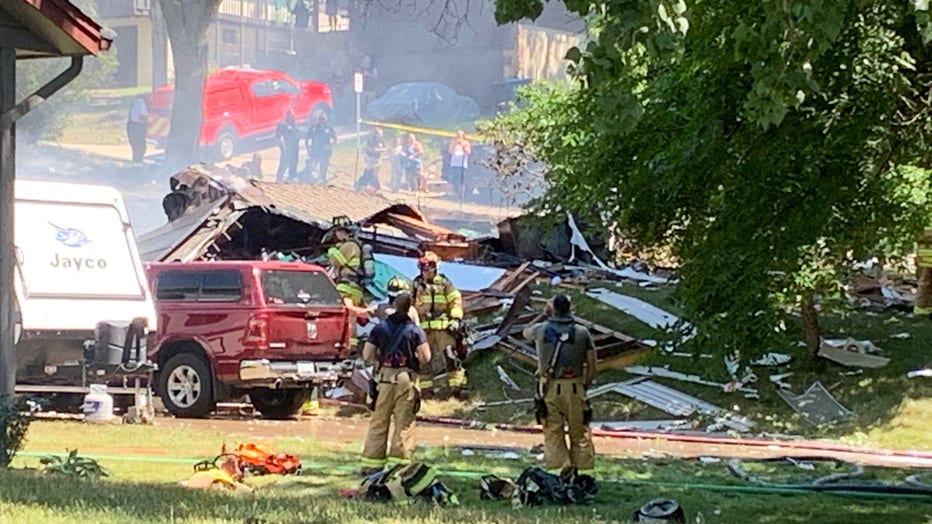Are digital twins the future of urban planning?
8 min read
Like any town, Boston is ever-modifying. Old properties appear down, new ones go up. General public transit snakes by way of the city. Almost everything from faculties to grocery retailers to trees dot the landscape.
For yrs, the city has wanted to seize all of this in a digital 3D product that could assist guideline preparing choices right before they acquire effect in the serious entire world. That design came to be in 2015, and 3 a long time later on, the metropolis designed it available to the public.
This digital twin encompasses the current landscape of buildings, transit, trees, daylight and shadows, and details of interest. It also includes proposed and underneath building properties and serves as an archive of what Boston looks like by the many years.
“This is like a dwelling, breathing kind of written content in that it has the archives in it, it has recent and then it has potential,” said Carolyn Bennett, deputy director of GIS, or geographic details program mapping, for the Boston Preparing and Improvement Company. “It sort of covers the entire gamut, and I feel that which is practical for the agency and the metropolis of Boston as a entire.”
Electronic twins, 3D digital replicas of a given process, position or detail, let cities and home entrepreneurs to take a look at out improvements prior to they enact them in the real planet. Metropolitan areas from Los Angeles to coastal Texas and beyond are significantly utilizing this know-how to examine the results of advancement, targeted visitors, climate modify and myriad other situations a metropolis must experience.
“You can simulate the consequences of your conclusions on a bodily object, in this scenario a city or a campus, in advance of you basically make those changes in the real earth,” said Ankit Srivastava, affiliate professor of mechanical and aerospace engineering at Illinois Tech. “It would make the choices much a lot more knowledge-driven and a lot significantly less expensive due to the fact you can participate in with many choices.”
But it requires focused time and effort to make certain that a digital twin continues to be up to day and will help a city go forward.
Capturing a metropolis in the digital realm
Since 2005, Boston has been getting discussions about how to integrate the city’s troves of information in a 3D model, Bennett claimed. Accessible information included geospatial details for drinking water and sewer, transportation, tax parcels and much more.
Now, Boston’s electronic twin contains that library of information. The town can use it to search at growth proposals and their consequences on a community in conditions of housing, zoning and parking. Planners can get city heat island facts from other resources and overlay it onto the twin to visualize temperatures in reference to properties, impervious surfaces and tree canopies, for illustration.
“It really is a greater way to form of visualize what we do as planners,” Bennett claimed. “We system in 3D. We are not a 2D company. We seem at the entire world in its current sort, so you sort of have to look at it in 3D.”
Chattanooga, Tennessee, has also found a electronic twin to be a handy software to encompass the data it collects.
“Can we provide all this actual-time data into a single typical ecosystem, where we can get a genuinely superior photo of what is going on?” said Jibo Sanyal, who leads the computational city sciences research device at Oak Ridge Countrywide Laboratory.
Researchers at Oak Ridge and the Countrywide Renewable Electricity Laboratory partnered with Chattanooga to develop a electronic twin that assists anticipate and ease website traffic congestion. Sanyal is the specialized and strategic lead on the task.
Info from 500 unique sources, these as targeted visitors cameras, 911 facts, radar detectors and temperature stations, feeds into Chattanooga’s electronic twin. Visitors congestion experiments completed in just this virtual realm have proven an improvement of up to 30% in targeted traffic move, resulting in better energy performance, Sanyal mentioned.
Scientists use the conclusions from these electronic twin experiments to enact improvements in the serious planet. For case in point, transportation planners ordinarily gather info in the course of the morning and afternoon website traffic peaks. But when scientists ran electronic twin experiments on Shallowford Street in Chattanooga, they identified that additional than 90% of vehicles get stopped by crimson lights for the duration of the midday rush.
In the serious world, these scientists have made use of the perception from those experiments to recompute the timing for targeted traffic signals alongside Shallowford Road to cut down congestion. They now can improve their signaling pattern every four minutes based on site visitors circumstances, Sanyal reported.
Chattanooga has 1 of the country’s busiest freight corridors, so the digital twin also will allow for more time-time period decisions. For instance, the metropolis preferred to know, are there specific periods of working day when it will make feeling for drivers to use the shoulder as a travel lane? Applying a electronic twin for this operate cuts down the evaluation expenditures, Sanyal mentioned.
“A good deal of study really stops [when] they publish a good paper, normally a extremely compelling paper, but the option to essentially implement it in the authentic planet frequently isn’t there,” he stated. “Chattanooga is awesome. They truly enable us go in and operate with them to transform settings in their visitors lights, configure them a bit in another way if necessary, and run these experiments in the actual planet. And then we notice before and right after to make a resolve of what type of enhancements we’re seeing.”
However scientists only regulate alerts together just one corridor currently, Sanyal reported he expects they will control about 100 indicators within a calendar year, across downtown Chattanooga and other superior-traffic regions of the metropolis.
The structures that make up a city
Electronic twins can also support cities and home house owners lower electrical power intake.
Towns develop all around 75% of the world’s greenhouse gasoline emissions. In order to lessen this air pollution, cities these kinds of as New York, Boston and Washington, D.C., have established targets for a upcoming the place properties have web-zero carbon emissions.
But decarbonizing a creating requires investigation and implementation of vitality administration methods and renewable tactics, in addition to the order of carbon offsets. Cityzenith is just one of the organizations that focus on acquiring city digital twins that help do just that.
The product can start off with as couple as two to 5 structures, reported CEO Michael Jansen. Property house owners input their data making use of a template, and the ensuing electronic twin will help them run and improve simulations dependent on aspects this sort of as a building’s age, issue and function. The aim is to have more electrical power-productive properties and consequently metropolitan areas.
Las Vegas and New York Town have adopted this technologies, with Phoenix and other U.S. and European cities anticipated to follow. Cityzenith strategies to donate the technology to a overall of 10 towns by Christmas this year and a total of 100 cities by 2024, Jansen said.
Roadblocks to electronic twins
One of the main roadblocks to applying digital twins is earning confident all the necessary details is in spot to establish out the design, Jansen reported. “Digital twins are not purchased,” he explained. “They are constructed.”
Due to the fact of the amount of money of info huge metropolitan areas already have, it is envisioned that much more of them will use digital twins, reported Mohammad Heidarinejad, assistant professor of architectural engineering at Illinois Tech. He additional that in five to 10 decades, these designs could make their way to a lot more smaller sized metropolitan areas, way too.
But metropolitan areas and home proprietors will confront hurdles together the way. Capturing actuality with a drone or scanning requires a great deal of storage, plus a electronic twin will have to evolve with time as items adjust in the actual earth, Heidarinejad reported. (Boston updates its product twice a 12 months.)
Just one way to update a electronic twin is to crowdsource facts, which includes images that persons take of a town and agree to lead to the task, reported Srivastava, of Illinois Tech. Possibly a central technique could analyze people photographs and their GPS coordinates and quickly update the digital twin with that information, he proposed.
The info digital twins incorporate can arrive with privateness challenges. If men and women can accessibility the info at the rear of a twin, so can hackers. Srivastava explained a town need to choose how considerably element to capture in its digital twin and what aspects to make community, especially as the total of facts in the earth raises.
“You will find likely to be much more and additional virtualization of the authentic world, and it is really only because it can be just so considerably much easier to get details,” he said. “I believe it’s going to be leveraged in the potential by towns.”
That will likely involve some financial investment from towns. Bennett said Boston has a 3D information analyst on staff whose principal responsibility is the city’s digital twin.
“Cities have to be kind of fully commited to it because it is a dwelling content and knowledge that you have to maintain updated and taken care of,” Bennett stated. “It’s complicated in that way due to the fact if it gets too out of date, then men and women truly will not want to use it.”
Sanyal of Oak Ridge National Laboratory explained the personnel and IT overhead can be tricky for a city to take on. Following all, metropolitan areas want to be fantastic stewards of taxpayer cash, so they are inclined to use items that are tested.
The electronic twin work Oak Ridge is performing with Chattanooga is developed to help that. Oak Ridge focuses on methods that are intended to scale to other metropolitan areas, so Sanyal wants to see organizations license the national lab’s technological know-how.
However, a digital twin is just one device that cities and houses can use to chart their long term, and the benefit it can offer will rely mainly on the info it has to get the job done with.
“Because it is so based mostly on facts, it is also really important to be watchful of what data we’re bringing in to make these choices,” Sanyal reported. “Ultimately, a electronic twin is a tool, and substantial-scale scheduling conclusions are usually produced by individuals.”






.jpg)